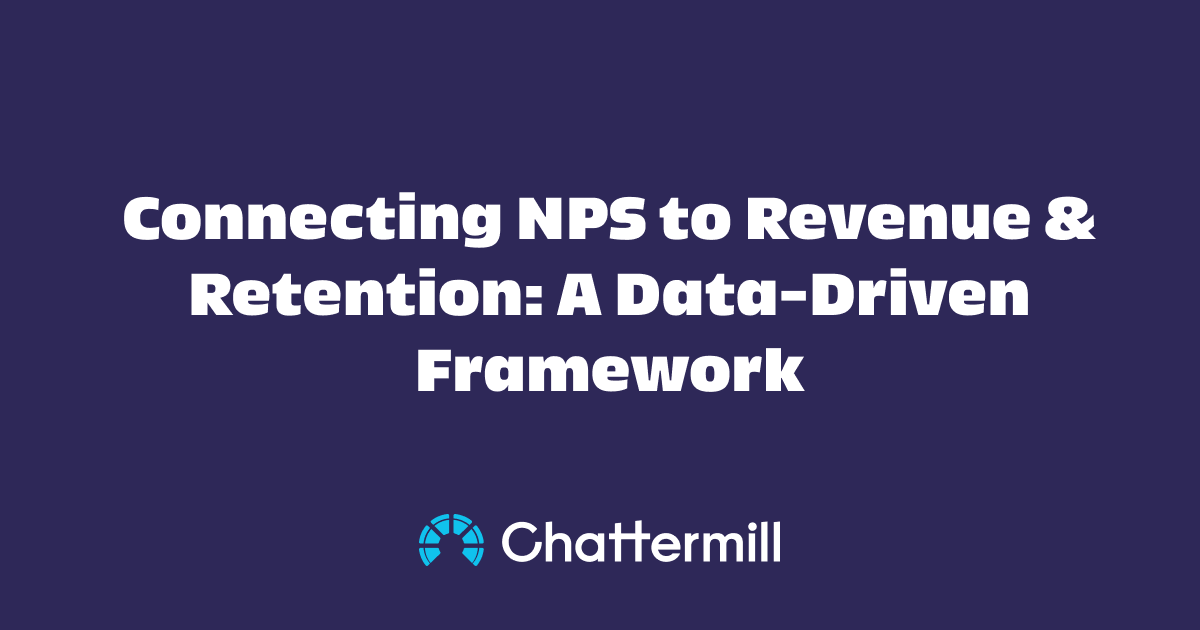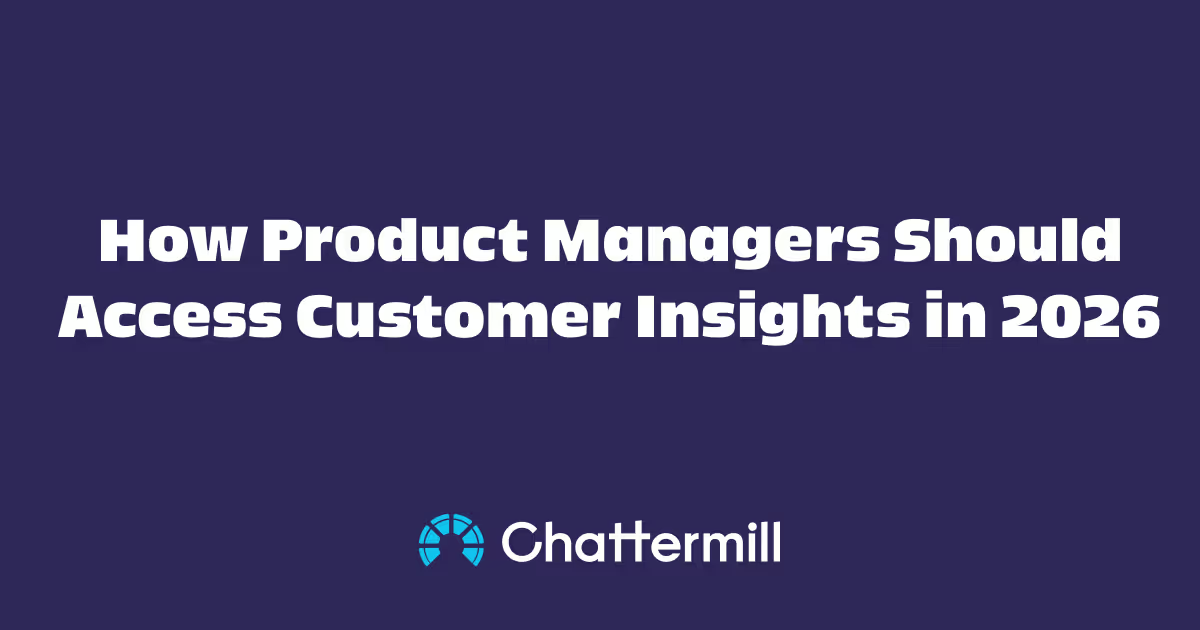How does Unilever deliver the exceptional experiences its customer and vendors love?
To find out, we’re joined by Claire Hennah, Chief Customer Officer of Beauty & Wellbeing at Unilever, who has a background in digital marketing and commercial stretching back almost two decades.
Read on for our key takeaways from Hennah’s conversation in our most recent Women of CX webinar. The full episode – including the Q&A – is, as always, available to watch below.

How Did You Get Into the World of CX?
Hennah’s background is a mix of digital marketing and commercial. Her first foray into digital was with pioneering dotcom startup Handbag.com, where she was responsible for a teenage online magazine before heading up marketing across all of their titles.
She then moved to Virgin Atlantic, then Selfridges, before running the digital business in the beauty and personal care at Unilever.
“Most of my career history has been focused on making the most amazing experience for my end stakeholder, and I think most of the businesses I’ve been fortunate enough to work in have been obsessed with customer experience,” Hennah says. “That’s why I’m so interested in the space, and that’s why it’s at the heart of what we do.”
How have your different companies and roles impacted your outlook on CX?
Hennah reflects on her first interactions with CX working at a startup, where you can’t help but be close to your customer. She also describes how customer experience was hugely important at Virgin Atlantic.
“Virgin know that one of the most stressful parts of travel is going through security,” Hennah says. “The idea of upper-class check-in meant that you could check-in in your car and go through your own secure entrance. That was created by somebody internally who knew some of the pains customers have. If you know where the pain points are, you can create the most optimum customer experience.”
Looking back at her time at Selfridges, her team strived to create an amazing digital experience which could match their already rich in-store environment.
“You can’t recreate the store, but you can enhance the experience,” she says. “How do you create this digital experience in the best way so you can bring the physical and the digital experiences together?”
One such way was the All Around Beauty campaign. This blended in-store demos that were live-streamed online (and to other stores) with Google Hangouts so consumers could interact remotely.
More recently, Hennah’s work at Unilever has been focused on the mobile experience. The open-source Mobile Hero Images project with Cambridge University is working to optimise mobile accessibility – helping retailers have a better standard of mobile experience for their end consumers.
“Put yourselves into the shoes of your shopper, your consumer, your customer,” she says. “Think about how you walk through their shoes and create the best experience.”
How have you found being a woman in CX?
Hennah acknowledges there are still gender gaps but admits she’s really fortunate to have had a varied and successful career in digital, commercial, and marketing.
“I think it’s critical to surround yourself with a diverse team, that really helps you think differently,” she says. “Whether that diversity is gender, nationality, or cognitive diversity.”
“What you need to be able to do when you’re thinking about customer experience is that you think about it in many different factors,” she adds. “There will always be blind spots. We’re sitting in the UK now, but how you design a website in China and how you create an immersive environment is so different to how Western people absorb information.”
“It’s not just about being female. But I think it serves you well to surround yourself with a diverse team.”
Do you have any advice for women who want to advance their careers in CX?
For Hennah, it’s a journey. She advises that women be mindful of the companies they want to work with and is clear that no woman wants to get a job simply from meeting a quota.
But businesses need to create a path.
“The storytelling, the experiences women have, is really important,” she says. “Seek out varied experiences. Be curious and learn. And build a network internally and externally.”
“That external orientation is really important because it helps keep you fresh,” she adds. “It helps bring in new opportunities to how you work. But also that network will help you build your future career opportunities too.”
When it comes to Unilever, what is your vision for CX?
“To keep it simple,” Hennah says. “It’s to bring the best experiences of our brand to every touchpoint.”
“And that’s really hard to achieve because you’ve got siloed teams, different ways of working,” she says. “So keeping brand consistency at every touchpoint, and serving your customer well – it’s a lot easier said than done. But ultimately, it’s making sure we create the best brand experiences anytime, anywhere.”
How have customer expectations changed over the past few years?
Hennah notes that since Covid-19, we have all become a lot less patient.
“Expectations are so much higher,” she says. “From your ability to react to trends, to speed to market, and being available anytime, anywhere.”
“Equally, there are broader factors that are happening in the world,” she adds. “Concern around having a planet left in 50 years – particularly for younger generations. We’re facing a pretty unstable climate on multiple levels. As a brand, as a manufacturer, or a retailer, or a supplier, you’ve got all of these macro factors, which are what your consumers are thinking about at the moment.”
How do you ensure that your CX is also aligned with the vendors you work with?
“First of all, you need to work with partners that have similar values as a business,” Hennah says. “Business integrity is really key for us as a business. Sustainability is at the heart of our company, so we want to work with partners that show that we’ve got a matching of our value system and that we can work collaboratively.”
“We also need to ensure that we’ve got the right framework and people involved in addressing the core partnerships,” she adds. “That integrity is really important for your consumers as well as your employees.”
How important is customer feedback at Unilever?
Hennah highlights that at Unilever, customer feedback underpins how they shape products and how they change them.
“If you pick up a shampoo bottle off the shelf and the cap is leaking, we need to know about that,” she says. “We’ve got things like the digital voice of the consumer, tracking, we do a lot of social listening, we do a lot of training with customer service centres.”
The latter is really important for all stakeholders. Retailers will often be interacting with the customer about certain product issues – and they need to be able to communicate the action that’s being taken by Unilever to address problems.
Is getting CX right even more important when you’re dealing with beauty and well-being products?
“Firstly, I think you need to live by the mantra that customer experience is right no matter what product or service you’re creating or selling,” Hennah says. “But for beauty and wellbeing, clearly, if you’ve got a vitamin, or mineral, or supplement you’re taking, you’re expecting it to have certain benefits.”
“If it doesn’t meet that expectation, or if you have an adverse reaction to it, that’s a problem.”
Hennah highlights that in the context of complicated beauty product ingredients, this communication can’t be underestimated.
“You absolutely need to stand by what you are saying as a company,” she says. “You need to be really clear – articulate it in a language people understand. It doesn’t mean that we get it right 100% all the time, but we’re on a journey to make sure that we’re bringing that transparency into a language that consumers understand.”
What are the biggest challenges facing companies like Unilever at the moment?
Hennah is clear that we are living in quite unprecedented times. But – importantly – she understands that challenges are also opportunities.
“How do you respond to inflation? How do you make sure that you are able to keep stock of your key products? How do you manage consumer tastes? And how do you react to the speed of the market? She asks. “All of these are challenges in the current context. But also, the best companies have an active response of how to manage them – and they see them as opportunities.”
What can other brands learn from your CX strategy?
Summing up, Hennah is concise here. “For us, it’s shopper obsession, we do a lot of shopper immersions, we’ll go and walk the store – online and in physical stores,” she says.
“For us, it’s really being alive where shoppers are. You need to experience it. Otherwise, you’re not keeping close to your consumer.”
Watch the Women of CX: Inside Unilever’s CX Strategy Webinar



.avif)

.png)










